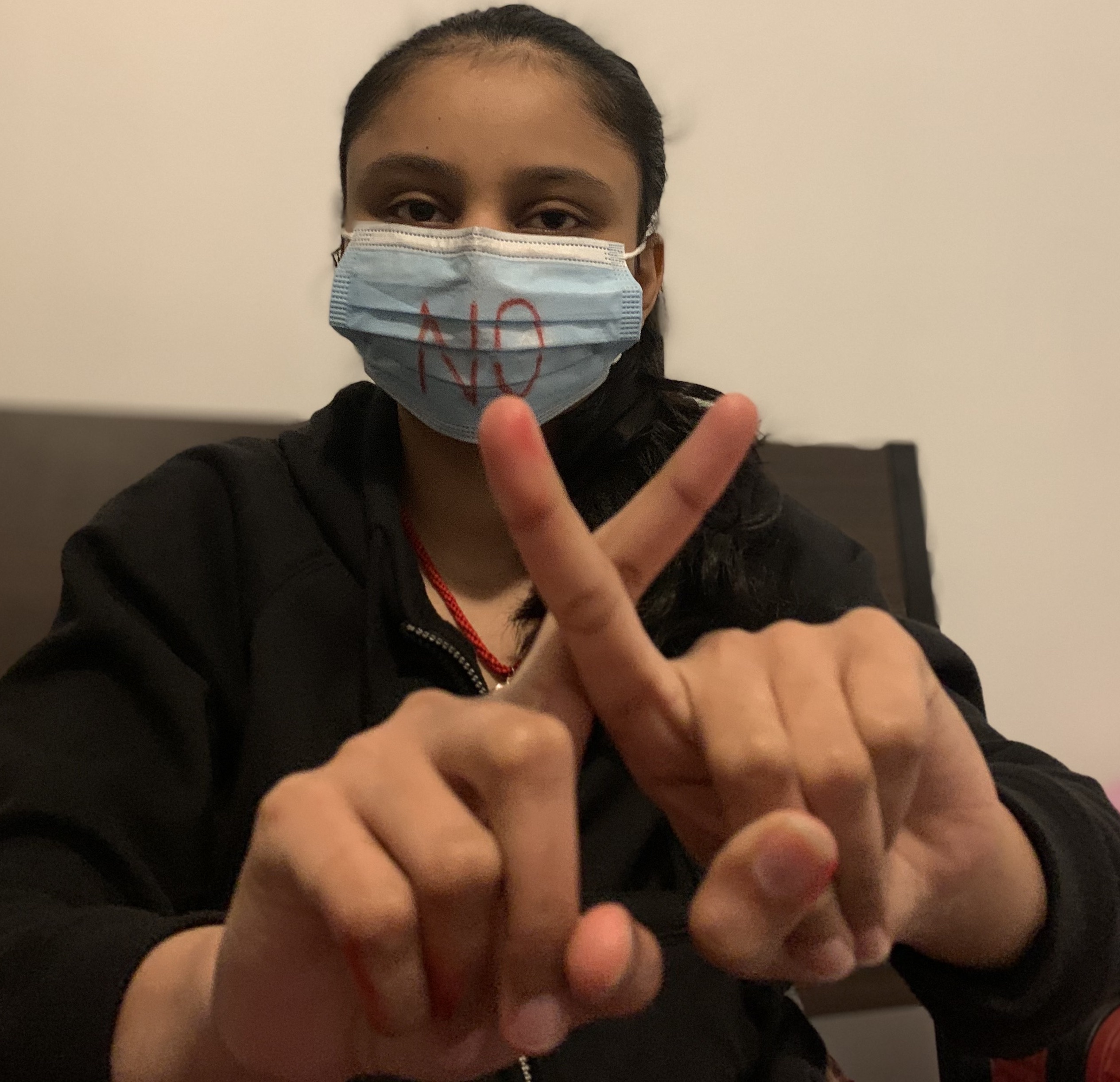Two letters, one syllable, the most common word according to the English dictionary and yet an awfully difficult one to use — No.
A possible threat to social lives and moral obligations, this tiny, mundane expression seems to hold more power than most weapons in modern times. But learning to say No could be life-changing for many, including me.
I am a big-time introvert at heart, and going down the scary road of self-love and making space for myself has been a personal battle that I’m still fighting. Some days, I am brave enough to refuse, but more often than not, I am vulnerable, and personal boundaries become blurry.
“Saying ‘no’ can be difficult because we fear missing out on experiences with others that make us feel included and that we belong,” says Whitney Wesley, a registered psychotherapist.
“I think saying ‘no’ is going to affect people’s opinion of me negatively and I would come out as a rude person to them,” says Bharti Yadav, a regulatory affairs student at Algonquin College.
“Missing out or feeling left out, can often trigger feelings of loneliness, embarrassment, guilt, and sadness,” says Wesley. “Even if those experiences aren’t good for us, aren’t something we are interested in or don’t align with our values or goals, we often say ‘yes’ because it helps us feel like we are a part of something and keeps difficult emotions at bay, at least in the short-term.”
Compassion can also make you a victim of this frightening word. Yadav says it is harder for her to say no because she tends to be more considerate towards other people’s feelings.
“I feel a little bad when I have to hear ‘no.’ This gives me an empathetic ground to the issue,” Yadav added.
We all love being loved, but breaking the habit of people-pleasing is a step towards a healthier life. “We are the only people who can make decisions to take care of ourselves,” says Wesley. “We own the decision to say ‘yes’ to a party, stay up too late, and fail our exam. We also own the decision to study, get good sleep, and wake up rested, ready to manage our responsibilities.”
Saying yes can be easy, but it’s also a path to exhaustion.
Wesley says that often people wait too long, until their mind, body and spirit is overloaded and it is evident in their daily activities. “Signs of this include changes in your appetite, increased anxiety, anger, or irritability, difficulty concentrating, forgetfulness, depression, feeling overwhelmed, difficulty in sleeping, problems managing normal responsibilities and increased alcohol or drug use,” she says. “These are all indicators we need to take time to reflect on our priorities, decisions, and day-to-day routines.”
The pandemic has triggered the inability for some to say No. The line between private and professional life has become hazy and maintaining a hale and hearty routine has become a more difficult balancing act. “When so many of us are working or studying from home, knowing when to put work away and take time for ourselves can be tough,” says Wesley.
Wesley says that creating routines that support delineation between work and private life is essential. “A schedule that allows structure can also help with this. Carve out time for breaks, social connection, exercise, and recreation.” She also suggests people have designated workspaces at their home. “It can help you put it all away when the time comes.”
But for Yadav, the pandemic can be credited with one positive thing in her life. For her, saying the “bad word” No has become easier. “I am attending my classes online and normally chatting with people over text. It’s easier to say ‘no’ on text than face-to-face,” she says.
However, refusing does not come easy. According to Wesley, it is a skill that requires practice but comes with a rewarding payoff.
She mentions three quick tips to set boundaries:
1. Be Assertive. Be clear about what you want while still being considerate of the other person’s feelings. Speak up, stay calm and be honest about what you want.
2. Use the “I” message. Using I messages makes you responsible for your choices. You are not blaming or putting your decisions into someone else’s hands. For example, “I feel tired. When we go out and stay up late too often, I start to feel run down and fall behind on my schoolwork. I need to rest and stay in tonight.”
3. Offer alternatives. Being connected in relationships means we also need to be flexible and consider other people’s feelings. For example, you might suggest an earlier time to meet up with your friend so you can hang out and still get enough sleep.
Growing from her mistakes and determined to work on the skill, Yadav believes that “balancing your yes’s and no’s” is the key to avoid being taken for granted. “I have felt less valued because of this habit of mine. But I never actually thought of what I could do to make the situation better. I am planning to research this topic, read a bunch of articles and find if there are any books that would help,” says Yadav.
While the fear of missing out could creep in from time to time, saying No without feeling guilty and listening to it without getting offended is an art; an art that can help you climb the ladders of success, peace of mind and happiness.

